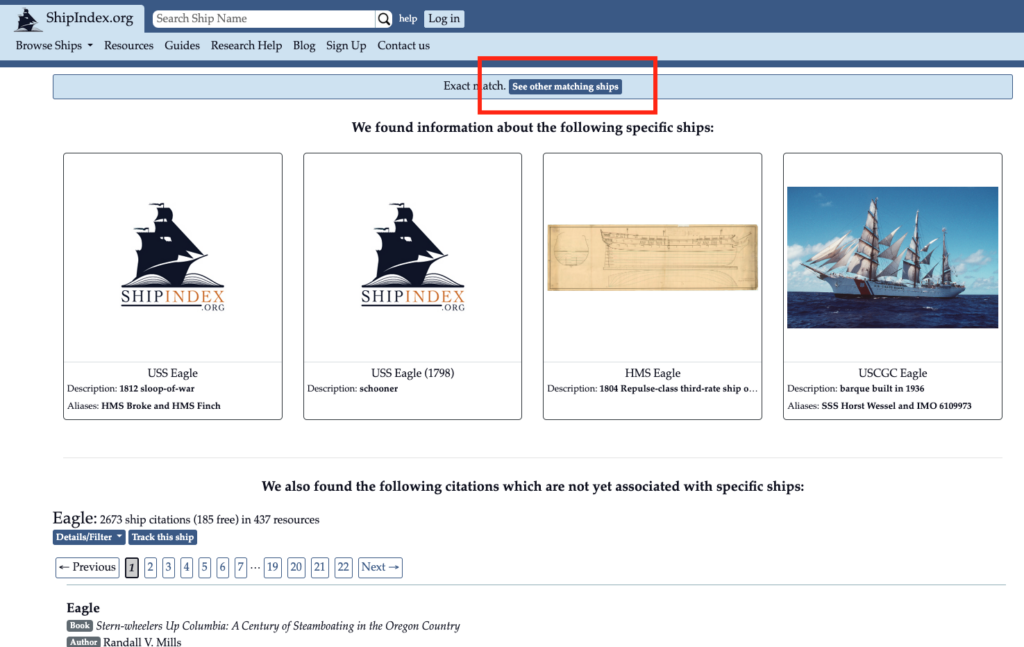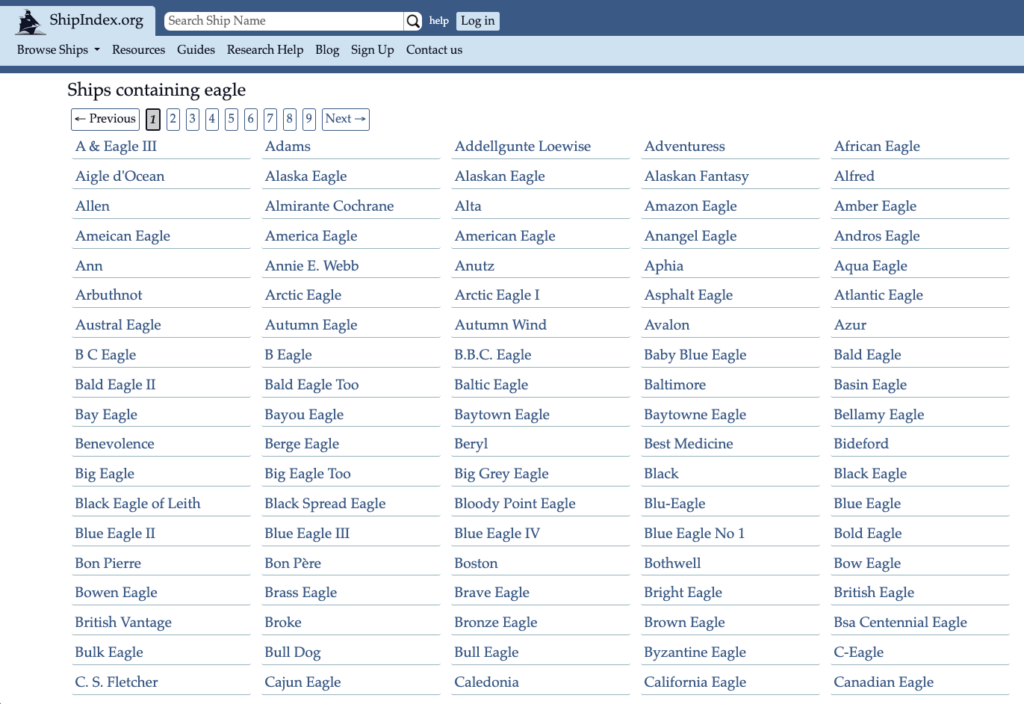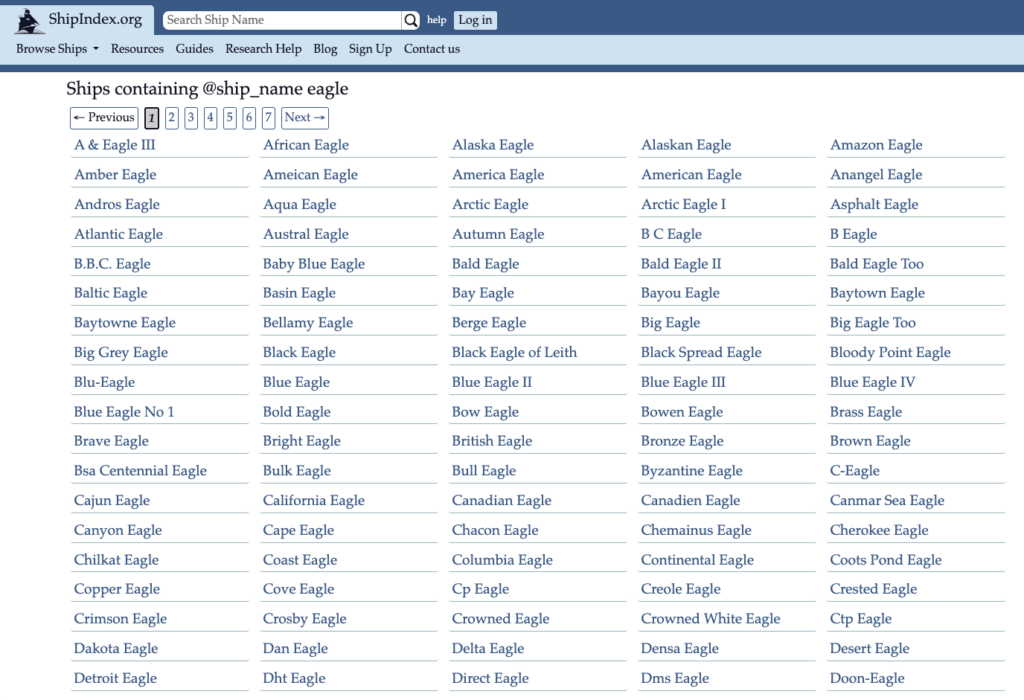Our “Introduction to Searching ShipIndex.org” Research Help Guide provides an overview of the basic parts of searching ShipIndex.org. There are some advanced features, as well, and they’re worth knowing about.
It seems straightforward – type in a ship name, get results. Actually, there’s a whole lot more that you can do in the database, and it is, admittedly, kinda wonky and a bit tricky. Please watch the following video to better understand how to use the search features more effectively.
Here’s an overview of the most important points:
- Remember that your search only brings back that ship name. There’s lots more after you click on the “See other matching ships” button.
- To limit a search to just the ship name field, use the term “@ship_name” and then the name of the ship. For example, “
@ship_name union“. - To search for a ship name that starts or ends with a specific word, use these characters: use “^” (the carat character) in front of a word, to indicate that the ship name must start with that word; or “$” (dollar sign) at the end of the word, to indicate the ship name must end with that word. For example:
- “
@ship_name ^union” to display ships whose name starts with “union” – Sample search - “
@ship_name castle$” to display ships whose name ends with “castle” – Sample search
- “
- Use “*” (asterisk) to expand a search, but you must start with at least two characters.
- A search for “acht*” returns ships where a word that starts with “acht” appears in the ship name or the citation. In this case, it includes “Acht Gebroeders”, “Achtienhoven”, “Martini Achter”, and “Y’acht Tu Put Family First”. Sample search. It does not look for “acht” within a word; it only looks for words that start with “acht”. (The apostrophe in “Y’acht” appears to create a new word; note that no entries with the full word “Yacht” appear in this search.)
- If you search for “
@ship_name *acht” you’ll get lots of citations for ships with names like “Deltagracht”, “Dotte Yacht”, and more. – Sample search. - And, if you put an asterisk before and after “acht”, you’ll get a combination of both searches from above, plus ship names where “acht” just appears within a word, as in “A Lil Naughty Yachty”. – Sample search.
- You can even exclude specific words from ship names by putting a “!” (exclamation point) in front of the terms you want ignored. A search with the phrase “
@ship_name ^mary !annie” will return all entries where the ship name starts with “mary” except for those that also have “annie” in the name. – Sample search
The full help page will give you more guidance as well. But it’s clear that there’s a lot you can do when searching the database.
An important concept here is that the ShipIndex.org database serves as a de facto authority file for vessels. There’s no larger collection of vessel names out there, and if you’re having a hard time finding information about a ship with the name you have, you might do some searching to see if there’s a different version of it. At a genealogy conference in England, a person came to me seeking information about a ship named “maid of sussex”. We found no ship with that name. Now, it might have still existed, but the ShipIndex.org database is pretty comprehensive at this point. By playing with the database, and searching for just “sussex”, for instance, then clicking on “See other matching ships”, we found “Sussex Maid,” which was, most likely, the ship she was seeking.
There are many ways of using and searching the ShipIndex.org database, even if you’re not subscribing. Give it a try, and let me know if you have questions or comments.




